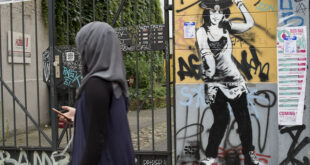Green, Lelia. Technoculture: From Alphabet to Cybersex. Crows Nest, NSW: Allen and Unwin. 2002. ISBN 1 86508 048 9 [paperback]. 254 pages.
Reviewed by Thomas E.R. Maguire, Department of Radio, Television and Film, University of Texas at Austin, USA.
Lelia Green provides a comprehensive and refreshingly non-messianic theory of culture and technology in Technoculture: From Alphabet to Cybersex. The Introduction provides a genealogy of the term "technoculture" itself, with Green settling on the neutral definition "tools of mediated communication through which cultural material is created and circulated" (pp. xxx-xxxi). This approach avoids viewing technoculture as the nebulous and inevitable relationship between any form of technology and its cultural or social context. Similarly, it avoids a definition of technoculture that focuses exclusively on either the parties of control or resistance in the political economic spectrum. Technoculture, ultimately, makes an argument for the usefulness of this term and its correlated theories for the study of technology, culture, and policy.
Green advocates an application of postmodern sensibilities to the issue of technoculture but not with a fatalistic optimism that ignores power relationships. She posits the primacy of cultural context in technological use and experience as the premise for any meaningful academic inquiry or policy considerations. Her assessment neatly encompasses everything from the political economic analysis of corporate media control to the psychological dynamics of online fan communities. Green argues that the plurality of technocultural experiences does not demand value-free intellectual politics. She recognizes the postmodern principle of fragmentation as a non-deterministic given in any technocultural reality - a starting point for the analysis of ethical and social implications. For instance, Green's discussion of the digital divide recognizes a legitimate social crisis, but not one that emerges from only a lack of technology access among the world's media poor. She also acknowledges the complex processes of personal interest and investment that go along with participation in technoculture. For any perceived economic and social benefits of technocultural involvement, policy must do more than address the problem of access.
Overall, Green provides an impressively coherent and unified understanding of technoculture in all its economic and cultural manifestations. However, in her analysis of popular culture and the Internet, she offers a more one-sided perspective, putting heavy emphasis on cybercommunities and their associated moral panics. Despite her attention to both the redemptive and perilous aspects of life on the Internet, she seems to advocate a more celebratory view of consumption that may only apply to a small segment of Internet users. The corporatization of the Internet and the enduring political economic issues do not get sufficient treatment in this section, but the lack of balance is an exception to the overall sophistication of the work.
Although Technoculture successfully integrates several competing theories of technology, culture, and society, the cursory nature of the book precludes detailed case studies and in-depth intellectual analysis. Green does, however, provide a fruitful framework for further inquiry. Technoculture would serve as an excellent introduction to the field of communications. Green addresses the foundational, disparate work in communication and cultural studies in a manner that clarifies their interconnections and mutual relevance. Her use of contemporary examples to illustrate intellectual issues makes the theoretical and scholarly questions accessible to the non-expert. Similarly, Green does not shy away from the social debates surrounding technoculture, so policy-makers would also benefit from her balanced exposition of these issues.
 Arab Media & Society The Arab Media Hub
Arab Media & Society The Arab Media Hub




